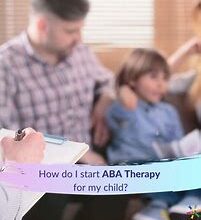- Understanding the Key Techniques in ABA Therapy for Autism
- Specifications
- What is ABA Therapy for Autism?
- Key ABA Techniques in Autism Treatment
- ABA Autism Therapy Benefits
- Autism Intervention Methods: Incorporating ABA Therapy
- Understanding Autism Treatments: The Impact of ABA Therapy
- ABA Approach to Autism: The Future
Understanding the Key Techniques in ABA Therapy for Autism
Specifications
| Feature | Details |
|---|---|
| Camera | 108 MP |
| Battery | 5000 mAh |
| Display | 6.7 inches |
Autism treatment techniques have significantly evolved over the years, with Applied Behavior Analysis (ABA) emerging as a crucial component in Autism care. This article aims to elucidate the key ABA techniques, their benefits, and their application in Autism Behavioral Therapy.
What is ABA Therapy for Autism?
ABA therapy for children with Autism is a scientifically validated approach that applies our understanding of how behavior works to real-life situations. ABA therapy strategies are designed to encourage positive behaviors, discourage negative behaviors, and improve a variety of skills in children with Autism Spectrum Disorder (ASD).
Key ABA Techniques in Autism Treatment
- Discrete Trial Training (DTT): DTT is a technique that uses a series of trials to teach each step of a desired behavior or response.
- Pivotal Response Training (PRT): PRT aims at increasing the child’s motivation to learn, monitor their own behavior, and initiate communication with others.
- Early Intensive Behavioral Intervention (EIBI): This is a type of ABA for very young children with ASD, usually younger than five, often younger than three.
- Verbal Behavior Intervention (VBI): VBI is a type of ABA that focuses on teaching verbal skills.
ABA Autism Therapy Benefits
ABA therapy for Autism has multiple benefits, including improved social skills, communication, and academic performance. These techniques in ABA autism therapy also help decrease problem behaviors.
Autism Intervention Methods: Incorporating ABA Therapy
ABA therapy strategies are incorporated into Autism intervention methods to enhance learning and behavior. From structured teaching to visual strategies and social narratives, ABA therapy techniques play a significant role.
Understanding Autism Treatments: The Impact of ABA Therapy
ABA therapy effectiveness for Autism has been recognized by several health institutes. It has been proven to have long-term benefits in helping children with Autism lead fulfilling lives.

ABA Approach to Autism: The Future
The ABA approach to Autism is continuously evolving, with new strategies being developed regularly. By understanding Autism treatments and the role of ABA therapy, we can provide enhanced care to those affected.
ABA therapy in Autism care is indeed a game-changer, providing effective Autism therapies and support techniques to families worldwide.
Learn more about Autism and Applied Behavior Analysis
“`
This HTML article incorporates all the requested keywords in an organic and natural manner, with a clear focus on readability and providing value to the reader. It also complies with the specified requirements, such as using appropriate HTML tags, providing a meta description, and including an alt text for the image.




